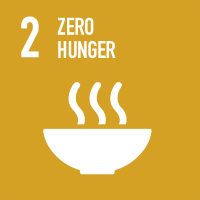Studying at the University of Verona
Here you can find information on the organisational aspects of the Programme, lecture timetables, learning activities and useful contact details for your time at the University, from enrolment to graduation.
Study Plan
This information is intended exclusively for students already enrolled in this course.If you are a new student interested in enrolling, you can find information about the course of study on the course page:
Laurea in Biotecnologie - Enrollment from 2025/2026The Study Plan includes all modules, teaching and learning activities that each student will need to undertake during their time at the University.
Please select your Study Plan based on your enrollment year.
1° Year
| Modules | Credits | TAF | SSD |
|---|
2° Year activated in the A.Y. 2023/2024
| Modules | Credits | TAF | SSD |
|---|
1 module between the following3° Year activated in the A.Y. 2024/2025
| Modules | Credits | TAF | SSD |
|---|
1 module among the following1 module among the following1 module among the following| Modules | Credits | TAF | SSD |
|---|
| Modules | Credits | TAF | SSD |
|---|
1 module between the following| Modules | Credits | TAF | SSD |
|---|
1 module among the following1 module among the following1 module among the followingLegend | Type of training activity (TTA)
TAF (Type of Educational Activity) All courses and activities are classified into different types of educational activities, indicated by a letter.
Food chemistry (2024/2025)
Teaching code
4S02768
Credits
6
Language
Italian
Also offered in courses:
- Food chemistry, nutraceuticals and functional foods of the course Bachelors' degree in Nutraceutical sciences and food health
- Food chemistry, nutraceuticals and functional foods of the course Bachelors' degree in Nutraceutical sciences and food health
Scientific Disciplinary Sector (SSD)
CHIM/10 - FOOD CHEMISTRY
Courses Single
Authorized with reserve
The teaching is organized as follows:
Teoria
Laboratorio [turno 1]
Laboratorio [turno 2]
Learning objectives
The course aims to address General aspects of Food Chemistry, which relate to the different classes of substances that make up a food and how they interact with each other and are transformed by processing, starting from macro- and micro-nutrients, then passing to the molecules that characterize the organoleptic sphere. A substantial part will also cover the use of specific substances for technological purposes (eg food additives). The various topics will be tackled in order to highlight possible food security issues that are increasingly relevant to both the producer and the consumer. At the end of the course the student will be able to understand the rationale behind the composition of a food and will have the knowledge to analyze and evaluate the quality of the raw materials and the finished product according to the processing and conservation processes applied. The proposed laboratory experiences (1 credit) are designed to give the student an overview of the main techniques used to analyze the quality of some of the major classes of molecules present in food: carbohydrates, lipids, proteins and polyphenols.
Prerequisites and basic notions
Basic knowledge of general and inorganic chemistry and organic chemistry is required.
Program
- Carbohydrates: mono, oligo and poly –saccharides in foods. Nutritional, organoleptic and functional properties. Technological and nutritional effects of heat treatments, caramelization, Maillard and Strecker reactions.
- Lipids: nutritional, organoleptic and functional properties of the saponifiable and unsaponifiable fractions. Emulsions. Lipid degradation phenomena: autoxidation and rancidity.
- Amino acids, peptides and proteins: nutritional, organoleptic and functional properties. Protein degradation due to technological processes. Seed reserve proteins: wheat. Meat proteins. - Polyphenols: chemistry and classification; antioxidant potential and biological activity. Enzymatic browning
- vitamins. Physiology of absorption and nutritional aspects. Effects of technological treatments on vitamins. Biological activity and bioavailability. Review of the salient features for each vitamin.
- Food additives and technological adjuvants. Regulations, issues related to possible toxicity, cases and limits of use. In-depth study: colorants, preservatives, antioxidants, sweeteners, fat mimetics
- Sensory aspects of food chemistry: color, taste and aroma.
- Notes on undesirable substances and contamination
Bibliography
Didactic methods
Frontal lessons + laboratory exercises.
In laboratories, students will be divided into groups of 3 students each and will be supported by the staff throughout the experiences. Attendance at 66% of the exercises is mandatory.
Learning assessment procedures
The exam consists of a written test lasting approximately 2 hours for both attending and non-attending students, covering topics covered in the classroom and laboratory parts.
There are no intermediate tests.
The student MUST send the teacher a report on the experiences seen in the laboratory within a week of the exam, which will be evaluated.
Evaluation criteria
Evaluation criteria
The student must demonstrate:
- To know the chemical characteristics of the different classes of substances that make up a food and the function that these have within the system, the modifications that these undergo during transformation and conservation, the main approaches for their analysis;
- to be able to apply this knowledge in order to solve applicative problems.
Criteria for the composition of the final grade
The final result will be given for 90% by the outcome of the oral exam and for 10% by the report of the laboratory experiences.
Exam language
Italiano, inglese per studenti stranieri

